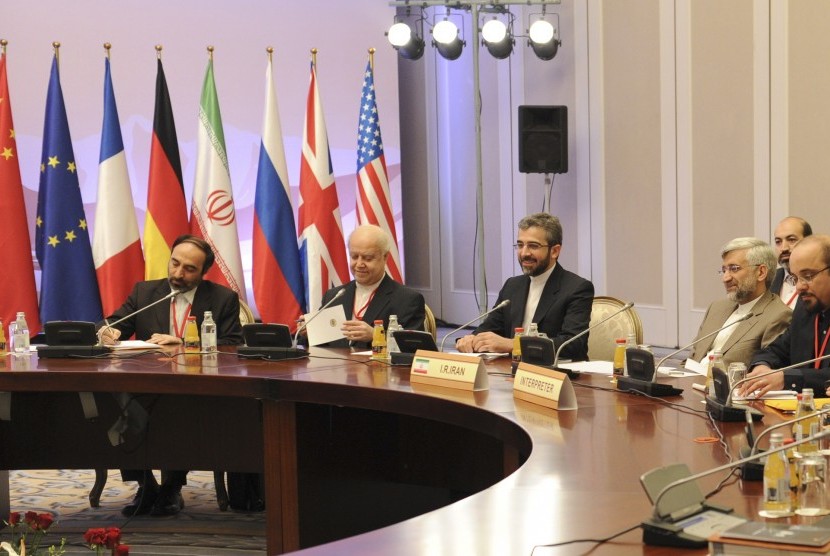REPUBLIKA.CO.ID, ALMATY - Major powers on Tuesday offered Iran limited sanctions relief in return for a halt to the most controversial part of its nuclear program, and Iran promised to respond with a proposal on the same scale.
The talks in Kazakhstan were the first in eight months between Iran and the five permanent members of the UN Security Council plus Germany - the "P5+1" - on a decade-old dispute that threatens to trigger another war in the Middle East.
Iran has used the time since the last meeting in June to further expand activity that the West suspects is aimed at enabling it to build a nuclear bomb, something that Israel has suggested it will prevent by force if diplomacy fails. The two-day negotiations in the city of Almaty follow inconclusive meetings last year in Istanbul, Baghdad and Moscow.
US Secretary of State John Kerry said in Berlin that he hoped Iran "will make its choice to move down the path of a diplomatic solution". A Western official who declined to be named said the talks had been "useful" and confirmed they would continue on Wednesday as scheduled.
But with the Islamic Republic's political elite preoccupied with worsening infighting before a presidential election in June, few believe the meeting will yield a quick breakthrough. "It is clear that nobody expects to come from Almaty with a fully done deal," said a spokesman for the European Union's foreign policy chief Catherine Ashton, who oversees contacts with Iran on behalf of world powers.
A US official said on Monday that the powers' offer to Iran - an updated version of one rejected by Iran last year - would take into account its recent nuclear advances, but also take "some steps in the sanctions arena".
Faster enrichment
A UN nuclear watchdog report last week said Iran was for the first time installing advanced centrifuges that would allow it to significantly speed up its enrichment of uranium, which can have both civilian and military purposes. Tightening Western sanctions on Iran over the last 14 months are hurting Iran's economy and slashing oil revenue. Its currency has more than halved in value, which in turn has pushed up inflation.
The central bank governor was quoted on Monday as saying Iran's inflation was likely to top 30 percent in coming weeks as the sanctions contribute to shortages and stockpiling. But analysts say the sanctions are not close to having the crippling effect envisaged by Washington and - so far at least - they have not prompted a change in Iran's nuclear course.


